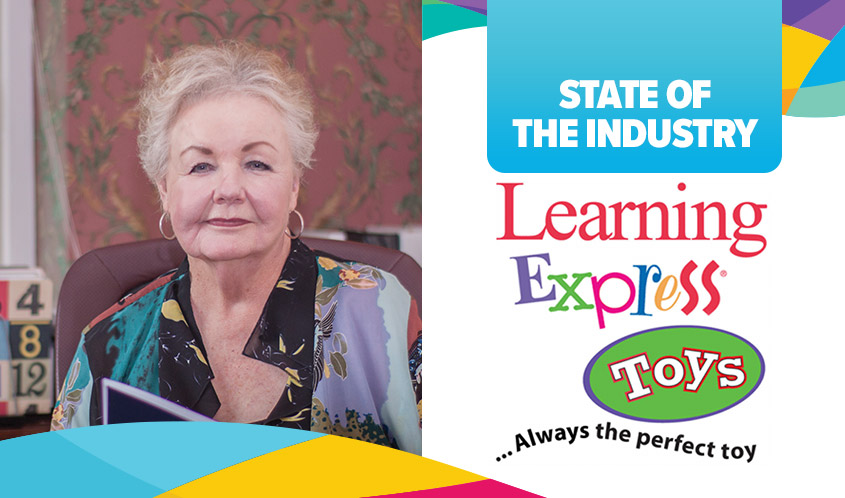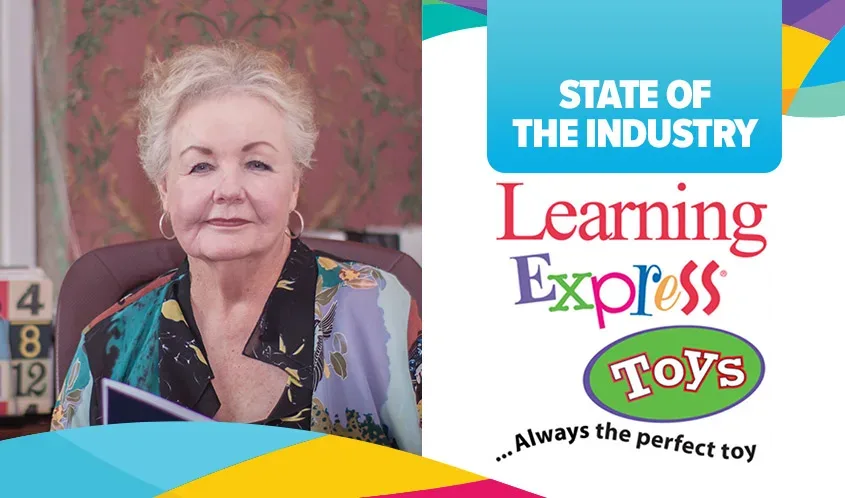
In the Toy Book’s annual State of the Industry Q&A, Sharon DiMinico, founder and CEO, Learning Express, shared the ways in which the company’s retail locations adapted during the pandemic.
The Toy Book: What new business strategies did you implement due to the COVID-19 pandemic?
Sharon DiMinico: The pandemic showed us early on that the only way to survive would be to quickly and effectively follow our two primary sets of customers, the end consumer, and our franchise store owners.
We joined The NPD Group, one of the largest consumer market research groups in the world, allowing us to see product trends with increased granularity. Finally, when the reason for shopping shifted from weekend social events to family game night and home schooling, we adjusted our inventory mix, in-store merchandising, and marketing.
While we reacted to the sudden shift in consumer preferences, we also looked forward to where they were headed. In a retail world increasingly dominated by online sales, we launched a new e-commerce franchise model and store design that prioritized operational efficiency over merchandising area, and web sales over shopping center foot traffic. We began the redesign of our Learning Express Intranet, the operating system used by our store owners for every aspect of their business, from ordering and marketing product to financial accounting and benchmarking. We are also experimenting with several other franchise growth initiatives we plan to test in 2021.
TB: In what ways did you feel supported by your community, government, or toy industry groups throughout 2020?
SD: When the pandemic hit, our stores’ communities rallied around “shopping local.” When shipping became an obstacle for online retailers, our stores were able to fill in the gap, providing learning resources for students now being home-schooled. Federal, state, and local governments rallied to support small business in March and April of 2020. The CARES Act gave our stores and their employees a much-needed lifeline through the Paycheck Protection Program, without which, many of our stores may not have reopened. Many states provided additional assistance. For one, the Governor of Massachusetts Charlie Baker launched a $668 million COVID-19 Small Business Grant Program, offering up to three months of operating expenses to eligible businesses. Finally, many local governments gave assistance where possible. In just one example, the Fire Department for the Town of Bedford, Massachusetts provided face masks to retail businesses when personal protective equipment was scarce.
TB: How did 2020 toy sales online compare to in-store sales?
SD: 2020 was the first year that the majority of our stores participated in e-commerce, which amounted to approximately 3% of our total sales. 2020’s performance was more than 3 times higher than 2019, a trend we expect to grow.
This State of the Industry Q&A response originally appeared in the February 2021 issue of the Toy Book. Click here to read more!

